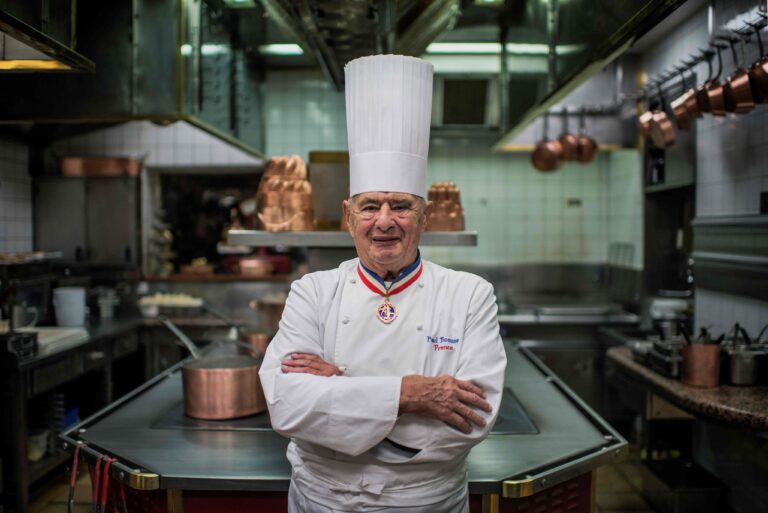Introduction:
In the heart of Lyon, a city often hailed as the gastronomic capital of France, the influence of legendary chef Paul Bocuse continues to resonate, shaping culinary traditions and inspiring chefs around the world. Known for revolutionizing modern French cuisine and elevating the role of the chef, Bocuse’s legacy is palpable in the vibrant markets, bustling bistros, and prestigious kitchens that define this gastronomic hub. As Lyon prepares to celebrate the centenary of Bocuse’s birth, the enduring impact of his artistry and innovation is a testament to his profound contribution to the culinary landscape. This article explores how Bocuse’s spirit lives on in Lyon, influencing everything from fine dining to local culinary education and community food culture.
Culinary Influence of Paul Bocuse on Lyon’s Gastronomic Scene
Paul Bocuse, often hailed as the father of modern French cuisine, has indelibly shaped Lyon’s gastronomic landscape. His revolutionary approach not only elevated the standards of fine dining but also embraced local ingredients and culinary traditions. Under his influence, Lyon has become a culinary hub that reflects a blend of innovation and heritage. Today, the city boasts an impressive array of dining establishments, from traditional bouchons that serve hearty local dishes to Michelin-starred restaurants pushing the boundaries of contemporary gastronomy.
The legacy of Bocuse can be seen in the thriving community of chefs and restaurateurs dedicated to his philosophy. Many now pay homage to his techniques, infusing their menus with a respect for classic French cooking while also exploring global influences. These chefs often participate in events and competitions that honor Bocuse’s ideals, ensuring that his spirit continues to inspire culinary excellence in Lyon. Notable contributions include:
- Focus on Seasonal Ingredients: Chefs prioritize freshness, sourcing from local farms.
- Training Grounds: Culinary schools in Lyon offer programs rooted in Bocuse’s teachings.
- Culinary Festivals: Events like the renowned Bocuse d’Or celebrate culinary artistry and innovation.
Preserving Tradition: The Role of Bocuse’s Culinary Schools
Paul Bocuse, revered as a culinary maestro, established prestigious schools that not only teach the art of French cooking but also instill a deep reverence for traditional techniques. His institutions, such as the École de Gastronomie Francaise, serve as vital havens where budding chefs can immerse themselves in the rich tapestry of French culinary heritage. Students engage in rigorous training that includes:
- Classical Techniques: Mastering the fundamentals of French cooking.
- Seasonal Ingredients: Emphasizing the use of fresh, local produce.
- Innovative Kreations: Encouraging the blending of tradition with contemporary cooking.
These schools preserve not just recipes, but the philosophy behind them, ensuring that future generations appreciate the artistry of gastronomy. Through a carefully curated curriculum, students also explore the role of regional specialties and historical context in shaping French cuisine. A look at the curriculum reveals:
| Course | Description |
|---|---|
| French Culinary Foundations | Exploring fundamental cooking techniques and kitchen etiquette. |
| Pastry and Baking | A study of traditional pastries and bread making. |
| Wine Pairing | Understanding the nuances of wine and food pairing. |
Innovative Trends Inspired by Bocuse’s Techniques and Philosophies
Paul Bocuse’s innovative techniques continue to influence the culinary landscape in Lyon, inspiring chefs to merge traditional French cuisine with modern gastronomy. His principles of respect for ingredients and creativity drive new interpretations in kitchens across the city. Emerging trends highlight the use of local produce, where chefs prioritize seasonality and sustainability, mirroring Bocuse’s philosophy of honoring the terroir. Techniques like sous-vide and fermentation are creatively integrated, offering unique textures and flavors reminiscent of Bocuse’s classic dishes.
The collaborative spirit he championed is also thriving today, seen through the rise of culinary collectives and workshops focused on sharing knowledge and techniques. These initiatives not only promote innovation but also strengthen community ties among chefs and local producers. Some key aspects of this modern movement include:
- Farm-to-Table Experiences: Chefs are establishing direct relationships with local farmers.
- Menu Storytelling: Dishes are crafted to narrate the origin and journey of ingredients.
- Culinary Education: Training programs inspired by Bocuse’s methods are emerging to shape the next generation of chefs.
| Trend | Description |
|---|---|
| Local Sourcing | Utilizing nearby ingredients for freshness. |
| Creative Techniques | Integrating modern methods like sous-vide. |
| Culinary Collaborations | Chefs working together to innovate. |
Dining Experiences: Must-Visit Restaurants Celebrating Bocuse’s Legacy
In the heart of Lyon, a culinary renaissance continues to flourish, deeply rooted in the teachings and philosophy of Paul Bocuse. His influence can be savored at several renowned establishments, where chefs strive to honor his commitment to excellence and traditional techniques. Among these, L’Auberge de l’Île stands out, boasting a menu that showcases local ingredients prepared with care. Diners are treated to signature dishes like the truffle-infused risotto and duck breast in honey sauce, both embodying the spirit of culinary artistry that Bocuse championed. With a picturesque setting by the Rhône River, it’s a perfect blend of ambiance and flavor.
Another must-visit is Le Nord, where the essence of Lyonnaise cuisine pulsates through its vibrant dishes. The restaurant derives inspiration from Bocuse’s principles, offering a menu that celebrates the region’s culinary heritage. Highlights include the coq au vin and quenelles de canard, both crafted using age-old recipes that reflect Lyon’s gastronomic roots. Diners can enjoy these mouthwatering selections in a chic yet welcoming environment, making each meal not just food, but a tribute to the legendary chef’s legacy.
The Conclusion
In conclusion, the enduring legacy of Paul Bocuse continues to shape Lyon’s culinary landscape, a testament to his profound influence on French gastronomy. From the bustling streets filled with bouchons to innovative culinary schools that train the next generation of chefs, Bocuse’s spirit remains palpable in every corner of the city. As Lyon celebrates its rich gastronomic heritage, it also honors the man who redefined haute cuisine and inspired countless chefs worldwide. Through his dedication to the art of cooking and commitment to local ingredients, Bocuse not only elevated French cuisine but also solidified Lyon’s status as a gastronomic capital. As both locals and visitors savor the flavors of the region, they partake in a legacy that will continue to thrive for years to come.




